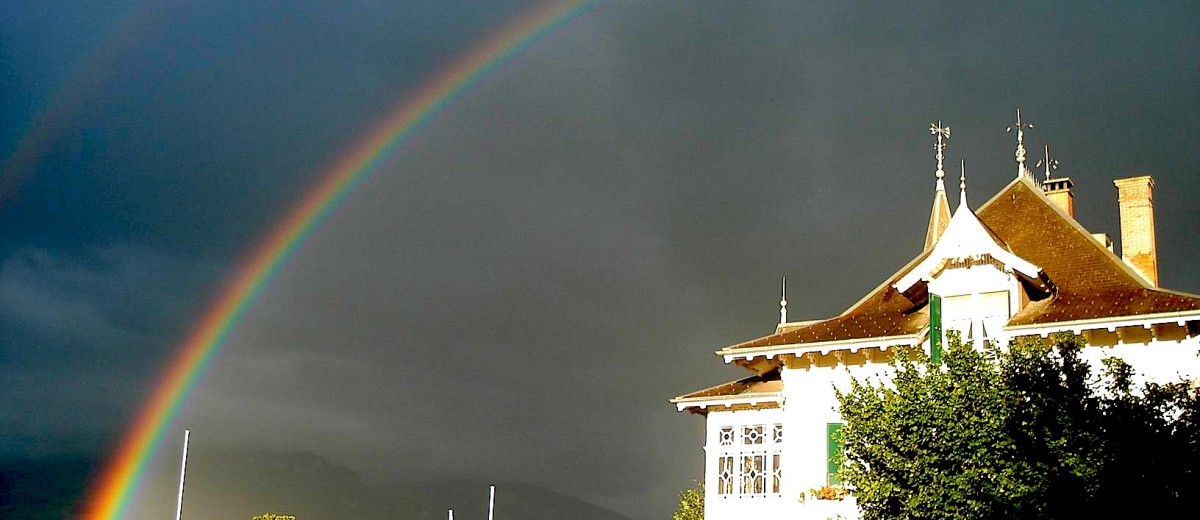The start of a new year is a good time to reflect on why things aren’t worse in our world. While we can list all the tragedies and horrors of the past year and wonder how bad this year will be, perhaps we should ask why more things don’t go wrong in our world.
After all, if the Bible teaches that we are all sinners, why do people do good wholesome things? Why do we want to help each other, laugh and cry together, love our own families or live creatively? Why are we appalled at the wrong-doing of others, the ISIS atrocities for example? Why should we be so touched by a photo of a little drowned refugee boy lying on a beach?
Why do people who have not heard or accepted the gospel, or even those who have rejected the gospel (or at least ‘churchianity’), contribute positively to human civilisation, discovering cures for diseases, inventing means to improve the standard of living and sacrificing for their children? Why shouldn’t sinful society simply spiral downwards into increasing depravity? Why does the Father, in the words of Jesus, ‘cause the sun to rise on the evil and the good, and send rain on the righteous and the unrighteous’? (Mt 5: 45)
Abraham Kuyper’s answer was what he called ‘common grace’. After the devastating flood which almost wiped out the human race, God promised to Noah never to allow sin to get so out of hand as to destroy the world and humanity–at least until the divine purposes had been fulfilled. The rainbow was to remind us of that promise.
In other words, God has set boundaries to the influence of sin, death and Satan. He chose to sustain the cosmos and human life in an intermediate state, preventing total destruction and depravity until his goals and promises would be fulfilled, when ‘all the peoples will come and praise you, O Lord’ (Ps 86:9).
Undeserved
This protection was ‘common’ because it was extended to all: good and bad, rich and poor, believer and unbeliever. It was ‘grace’ because it was undeserved divine favour, sovereignly bestowed. Common grace was closely related to–but distinct from–saving grace, by which individuals were spiritually reborn. Both graces were aimed at the goal of the restoration of the whole world until it would finally reflect the glory of the divine image, according to Kuyper.
Common grace is seen in the following ways:
• God’s sustaining care for his creation, ‘upholding the universe by the power of his word’, the regularity of the seasons, the fruitfulness of our planet with times for sowing and harvesting;
• the institutions of government at various levels, including family government and civil government. Even pagan parents know they should nurture their children into responsible adulthood to uphold order and justice and to punish wrongdoers. (Matt 7:9-10). Paul teaches that civil authorities are ordained by God and are even called ‘ministers of God’ (Rom 13:1,6);
• through conscience, the law written on our hearts, something of the image of God still discernable despite human fallenness (Rom 2:14-15);
• through all sorts of human advancements by believers and unbelievers alike, in medical, technological, scientific, engineering, economic and social fields which improve people’s lives.
Closely related are the concepts of general revelation (God’s self-revelation to all through creation and conscience) and special revelation (through the Bible and Jesus Christ, the written Word and the living Word).
Transformation
God’s gift of cultural skills to believers and un(pre-)believers alike enables common culture where humans collaborate to advance society through art, science, economics and politics. This understanding of common grace gave a theology and rationale to Kuyper’s followers for believers to work together with non-believers towards a better world.
Special grace gave understanding of the ultimate purposes for such gifts and skills: God’s glory and the restoration of his original intention for the human race. Human works can never earn us this special grace. But we can be grateful for all the human efforts that have improved and even extended our lives: helicopters that rush us to hospital, global cooperation towards environmental protection, international courts that bring war-criminals to justice, and so on.
Christians with ‘gloom and doom’ perspectives of the future, counting wars, famines, persecutions and earthquakes to see how close we are to the end, tend to miss God’s sustaining hand in human affairs. Kuyper, standing on Calvin’s shoulders, has fathered the emergence of a proactive engagement of Christians in cultural, social and political affairs towards the ‘transformation’ of society.
Which does not replace the need for people to experience saving grace. But it does mean that next time we see a rainbow, we should remember that God isn’t finished with us yet.
Till next week,



